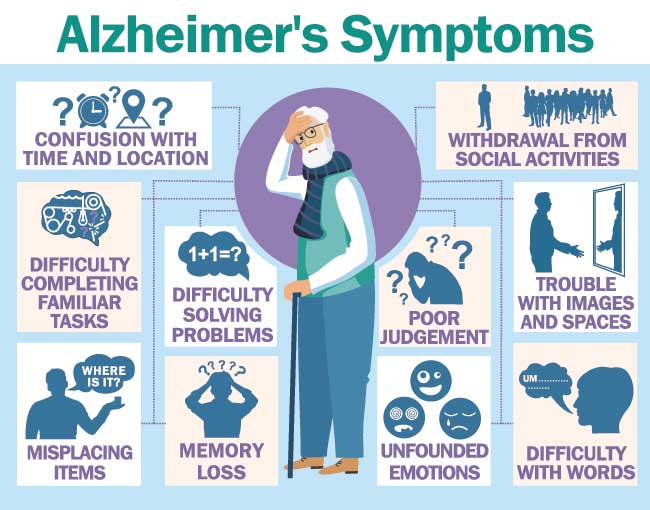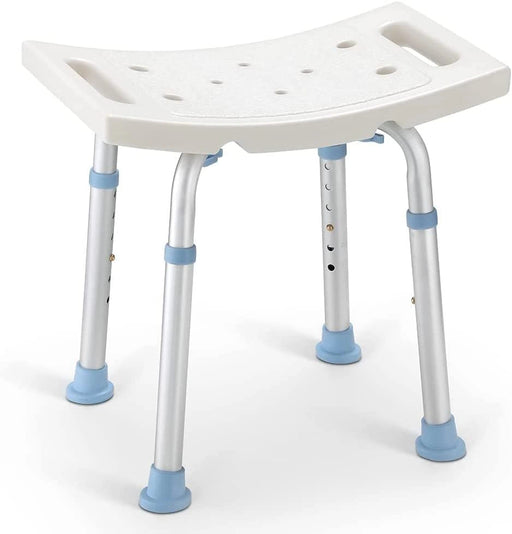[2023] Tips to Help Prevent Alzheimer's Disease
As stated by the Alzheimer's Association, over 5 million Americans already suffer from Alzheimer's disease, and by 2050, that figure is expected to reach about 14 million.
Although there is presently no treatment for the illness, researchers have been studying it for years in an effort to understand why it occurs and what our body experiences as the symptoms worsen.

Recent research suggests that the battle against Alzheimer's is not hopeless for humans.
According to this research, one out of every three occurrences of Alzheimer's illness could be prevented via lifestyle adjustments and the control of particular medical conditions.
You may be able to lower your health risks by adopting a few lifestyle improvements, such as changing the foods you consume or how you handle stress.
Continue reading to discover how to take control of your well-being and create an everlasting difference.
1. Stimulate the brain.

Many elderly individuals want to continue to develop and maintain their cognitive talents as they age in order to keep their brains fresh.
According to recent research, practicing "brain teasers" like Sudoku may lower a person's chance of developing dementia, Alzheimer's disease, or mental impairment as they age.
For example, Sudoku improves our capacity for pattern recognition, gap filling, and opportunity identification while also teaching the brain to employ its analytical and logical thinking abilities.
2. Speak a second language.

Acquiring a new language may also assist strengthen your cognitive abilities, which might help stave off mental impairment.
And being bilingual throughout one's life would help assist in delaying the development of Alzheimer's disease as well.
3. Maintain a Healthy Diet

A brain-healthy diet is a cornerstone of Alzheimer's disease prevention. Certain foods can help keep your brain in top shape. What should you include in your diet?
-
Antioxidant-rich fruits and vegetables: Fruits like blueberries, strawberries, and oranges, and vegetables like spinach, broccoli, and bell peppers are packed with antioxidants. These combat oxidative stress, which plays a pivotal role in the development of Alzheimer's.
-
Omega-3 fatty acids: Foods like fatty fish, walnuts, and flaxseeds are high in omega-3 fatty acids. They promote brain health by reducing inflammation and building brain cells.
-
Whole grains: Foods like brown rice, oatmeal, and whole grain bread can help regulate blood sugar levels, a critical aspect in preventing Alzheimer's.
4. Get quality sleep.
Elderly people require regular sleep of between six and eight hours.
The latest research suggests that harmful proteins linked to Alzheimer's disease are eliminated during sleep via the cerebrospinal liquid dynamics.
Therefore, it is advised that older adults exercise "sleep hygiene" in order to receive good rest.

Set your mobile phone to "do not disturb" mode so that it won't buzz or scream and wake you up. Purchase an alarm clock instead, and place your cell phone in a separate room.
In the fast-paced, high-tech world these days, it's critical that we provide our bodies and brains with the downtime they need.
5. Make connections.
Latest studies have offered us all another incentive to interact with friends or establish new ties with strangers. For instance, according to the Centers for Disease Control and Prevention, social alienation was linked to a fifty percent higher risk of Alzheimer's disease as well as other major physical diseases.

In addition, study results in PLOS Medicine monitored participants for 28 years to observe how lifestyle can impact aging, especially cognitive abilities. They discovered that those who were socially active had an advantageous impact on their brains, developing a "cognitive reserve," lowering anxiety levels and encouraging other beneficial habits.
Accordingly, keeping a robust social network ought to be the top goal for healthcare considerations. The likelihood of distress has been demonstrated to be decreased, and general life contentment has been improved, through social engagement.
6. Exercise.
The Alzheimer's Research & Prevention Foundation claims that frequent physical activity may lower your chance of Alzheimer's disease by close to 50%.
Furthermore, for people who have already begun to experience cognitive issues, exercising may potentially prevent future decline. Exercise helps the brain retain existing links and form new ones, protecting it from Alzheimer's disease.

Various medical issues, such as hypertension have been related to Alzheimer's disease and other kinds of vascular dementia. The greatest method to lower blood pressure and reduce your chance of developing issues like vascular dementia, Alzheimer's, and other diseases is to get exercise.
To start experiencing the advantages, you don't need to keep an intense workout regimen. In fact, increasing blood circulation and oxygen supply to the brain may be accomplished simply by lacing up your sneakers and taking a quick daily stroll around the community.

The use of assistive walking aids, such as a rollator walker, may make it easier for senior individuals with knee issues to move about and prevent them from stumbling.
7. Sap your stress.
Your physical and emotional well-being could be harmed by any kind of chronic stress. This also applies to the state of our cognitive abilities.
Happily, you could control your everyday stress so that it doesn't develop chronic and harmful by using effective coping strategies and stress management techniques.
For stress reduction, consider using deep breathing, praying, or regular blogging. Additionally, you might include meditation in your daily routine. The Kirtan Kriya meditation method has been shown to improve memories and lower the incidence of Alzheimer's disease.
8. Limit cigarette consumption.
Tobacco has already been associated with major physical health issues, such as hypertension and a higher risk of developing cancer.
One of the potential indicators of Alzheimer's disease that would be most easily avoided is smoking. According to one study, people who smoke over 65 years old have a roughly 80% increased risk of developing Alzheimer's disease compared to non-smokers.

The brain experiences enhanced circulation well almost instantly after quitting smoking. Consult your doctor about tobacco quitting methods that might be effective for you, and choose a dependable plan.
9. Watch your blood pressure.
In the opinion of medical experts, a strong heart usually results in a healthy brain. Ensure that you and your doctor are monitoring your blood pressure and working to maintain a safe level.
Be certain to adhere to any prescription instructions, maintain a healthy diet, and include frequent exercise in your usual schedule.
10. Routine Medical Check-ups
Regular check-ups can help detect health conditions that may increase your risk of Alzheimer's disease. These include hypertension, diabetes, and high cholesterol. Early detection and control of these conditions can go a long way in Alzheimer's prevention.
11. Role of Supplements
Some research suggests certain supplements may support brain health, but they can't replace a healthy lifestyle. Always consult your healthcare provider before starting any supplement regimen.
FAQs about Preventing Alzheimer's Disease
1. Can Alzheimer's disease be prevented?
While there's no guaranteed way to prevent Alzheimer's, certain lifestyle changes can significantly reduce your risk.
2. Can diet and exercise really make a difference in preventing Alzheimer's?
Yes, research suggests that a balanced diet and regular physical activity can boost brain health and may reduce the risk of Alzheimer's.
3. Are there any medications to prevent Alzheimer's disease?
Currently, there are no specific medications that can prevent Alzheimer's. However, controlling other health conditions like diabetes, hypertension, and high cholesterol can help.
4. Can mental activities prevent Alzheimer's disease?
Mental stimulation can generate new connections between nerve cells and help the brain stay active, potentially reducing the risk of Alzheimer's.
5. Can smoking increase the risk of Alzheimer's disease?
Yes, smoking can increase the risk of Alzheimer's. Quitting smoking can potentially reduce this risk.
6. Can supplements prevent Alzheimer's disease?
Some supplements may support brain health, but they can't replace a healthy lifestyle. Always consult your healthcare provider before starting any supplements.
Ending
Despite the fact that genes have some influence on the illness, Alzheimer's is typically not inherited. Although the precise origin of Alzheimer's disease is unknown, lifestyle decisions have a much bigger influence than most people believe.
These proactive measures mentioned above to obtain and remain healthy could not only prevent Alzheimer's from developing, but they could also reduce your risk of catching other chronic illnesses and enhance your general well-being.
Recommend Products
-
 Sale
Sale
Standard - 300LBS Capacity Shower Stool
Original price $51.99From Original price $29.99Original price $51.99Current price $29.99From $29.99Current price $29.99OasisSpace Medical Square Shower Stool for Bathtub OasisSpace Square Shower Stool for Bathtub is approved as the highest standard(FDA) for medical...
View full detailsSaleOriginal price $51.99From Original price $29.99Original price $51.99Current price $29.99From $29.99Current price $29.99



